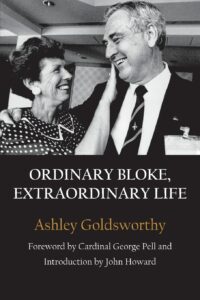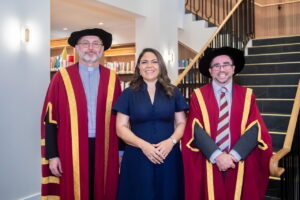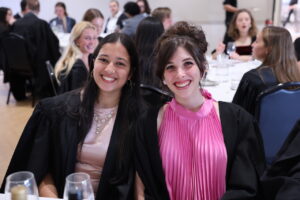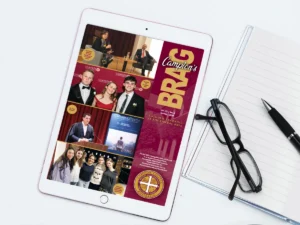Dr Paul Morrissey: Goldsworthy’s story shows difference a life can make


Dr Paul Morrissey
Campion President
One of the great promises of our Lord is in John’s Gospel: “I came that they may have life and have it abundantly.” (Jn 10:10)
Ashley Goldsworthy, as evident in his memoirs, has lived – and continues to live – an abundant life.
Originally written for the benefit of his grandchildren, Goldsworthy quite rightly recognised that his contribution to myriad areas of public life deserved a wider audience.
Edited by The Australian’s Tess Livingstone, Goldsworthy’s recount provides an insight into Australia’s recent history through the lens of his contribution to, inter alia, the public service, property, computing, education, politics, and the Church.
In the preface, Goldsworthy describes himself as an ordinary man with no special talent, although possessing a very strong work ethic, great perseverance, and integrity – secrets to success in the seven different career paths his life would take.
His life is a great testament to the contemporary idea of transferrable career skills, such as leadership, communication, common sense and clear thinking; skills that transcend narrow specialisation.
When Goldsworthy became CEO of Jennings, the then largest Australian construction company, he had no knowledge or skills in property or construction, but what he did know was how to eradicate inefficiency (he terminated every single committee, “whether I had heard of them or not!”) and use his considerable skills of negotiation, talent spotting, and clear-sightedness to increase the company’s profit three-fold.
Most notably, Goldsworthy was responsible for the Southbank development in Melbourne, one of the most significant and successful CBD improvements in Australia’s recent history.
The book includes a wonderful anecdote of how he significantly negotiated with the Victorian government over an impasse regarding the height of the development.
The government believed it would block the view of the spire of the Arts Centre. Goldsworthy, without any hesitation, offered to pay to extend the height of the spire (without knowing the cost or what was possible). He succeeded in getting the ‘okay’ and the spire did not increase in size.
As a leader in so many different fields, Goldsworthy’s insights on leadership are worthy of note.
There are four fundamental requirements, he says: integrity, a willingness to disrupt, generalist skills, and an unshakeable belief in one’s own infallibility (yes, a healthy ego is a requirement).
In many senses Goldsworthy’s approach to leadership is old-school, but it’s an approach that does not shirk responsibility and is healthily indifferent to rule by committee.
Unexpectedly, after leaving Jennings, Goldsworthy found himself in academia as Professor of Leadership and Dean of Business at the fledgling Bond University on the Gold Coast.
He achieved many things in this role, and his thoughts on education in general are prescient. He laments the fact that universities have become “sausage machines” evident in a “mind numbing drive towards the uniformity of mediocrity.”
Goldsworthy also decries the decline in the humanities, where many are dedicated to “promulgation of anti-Western, anti-liberal, and anti-democratic ideologies”. He sees in Campion College and the Ramsay Centre hopeful signs that are defying the trend.
Goldsworthy is unashamedly Catholic and has contributed mightily to the Church. He was proudly the first Catholic to be National President of the Liberal Party.
He has also been resolute in standing up for unfashionable Catholic truth, especially on morality.
Goldsworthy was the founding chairman of Marriage Alliance, set up to defend traditional marriage, during the national debate on same-sex marriage.
In the chapter describing the importance of his faith, he describes the many changes in the Church and society over his lifetime, some for the good (less sectarianism), and some for the bad (a loss of “salt” in Catholic practice and devotion).
In a short review it is impossible to do justice to the amount of Goldsworthy’s achievements.
He begins with a poem that asks, “What difference have you made?” It is a question that can sound a little trite, but Goldsworthy’s is a life that has truly made a difference.
There have been real practical achievements, especially in the public service as computing technology was just developing.
Then there are the achievements in business, construction, education, politics, and governance.
There are also the achievements through many philanthropic endeavours. But, in his words, the most important chapters in his life involve his beloved wife Shirley and their children and grandchildren.
This is a fascinating and easy-to-read memoir, with a foreword and introduction by George Cardinal Pell and John Howard.
Ashley Goldsworthy’s extraordinary life is a testament to the importance of Catholics contributing to civic life for the betterment of society.
It is a life worth reading about and sharing. Highly recommended.




